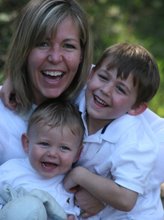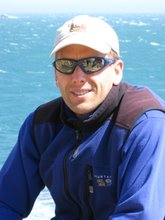I just read this very beautiful essay and wanted to share it...
My Cancer Was A Gift
I stood by the hospital bed of a friend who was dying of cancer. He wanted to know why he was sick, why he must die, why he must leave his children and grandchildren. As his rabbi, I was armed with few answers. I could tell him that it was part of God's plan or I could confess to him that I did not know. Neither seemed like the right response.
So, instead, we exchanged stories about chemotherapy. My hair was just beginning to grow back after a bout with lymphoma; his, wispy to start, was gone from the drugs that had targeted all the fast-growing cells in his body. They had done a thorough job on his hair but not on his cancer.
Faith is connected to hope and hope means believing in spite of the evidence and then watching the evidence change.
We talked about the strange gratitude we felt for the medicinal poison as it coursed through our veins. There was a moment of solidarity, then sadness returned. Battle stories are not nostalgic when they end in death.
"But at least you understand," he said. It reminded me anew that my cancer was a gift; as a rabbi, it validated my compassion. People knew that I really did understand, that my family and I were not unscathed. Needles seemed forever to be dangling from my arm and I was always being shoved into metal tubes for scans and pictures and tests. Enduring the elaborate technology of survival creates a kind of tribal solidarity.
"So," he asked, "why did it happen to you?"
Did I get cancer for a reason? Four years before my lymphoma I had undergone surgery for a brain tumor, thankfully benign. Five years before that, after the birth of our daughter, my wife had cancer and surgery that left her unable to bear more children. After each experience, people would ask what it meant. Now someone was asking not out of curiosity or even spiritual hunger, but spiritual urgency.
We looked at each other for a long time. I know what it does not mean, I told him. It was not a punishment. The calculus of reward and punishment in this world is surely more complex than sin equals cancer. One thing is clear: the cancer is not only about you. Those who care for you suffer as well. The ripples do not end.
Facing our own mortality, the traditional roles had melted away. We were no longer rabbi and layperson, younger man and older man. I recalled how in the first verse of the Book of Kings, King David was no longer referred to by his title when he neared death: "Now the days of David drew near that he should die." When we approach death we no longer can hide behind titles and status. The man and I were two people who had undergone similar ailments. One of us, for now, was in remission, and one of us would die before the other. And neither knew why.
He told me that it was not his own life he feared for, but what would happen to his family. How would his loss hurt them? I remembered how, as I was first wheeled into surgery, I was surprised at how little I feared death; I feared instead the consequences of my death. I feared not for myself but for my wife and daughter.
Did he believe in another world? He was not sure, but he hoped. I ventured that everything a human being was — the hopes and dreams, the love and gifts — could not completely disappear. The old analogy had it right: There is a birth into this world that we never could have imagined. Might there be a new birth, another world, equally beyond the reach of human imagination? Life, as writer Vladimir Nabokov once said, was such a remarkable surprise, why should death be less of a surprise?
He smiled and we shared a moment of hope. Maybe all the therapy, the scans and shots, had only postponed the consummation of an unimaginable life to be.
But we soon returned to the moment. To die is to lose everything we know, all the wonders of this world and the people in it. To die is to leave so many stories unfinished and to miss the next act of the stories of others, those whom we know and whom we love.
I did have one thought that might offer him a glimmer of comfort. When I was sick it became clear to me how carefully others watched my reaction — would my faith help me at all, they wondered? Does a professional practice of Judaism offer some strength? Feeling their eyes on me helped me realize that in sickness we are not powerless — we still have the ability to teach.
I told this man, my friend, my fellow human, that his children and grandchildren were watching him. Here was a chance to teach his greatest lesson. They would remember much about him to be sure, but they would never forget how he died. His acceptance, his dignity, even his hope, could change their lives.
Each week, I told him, I studied Torah with a man who just turned 90. He had often recounted what his mother said to him as she was dying: "My child, do not be afraid. It is only death, and it has happened to everyone who ever lived."
The two of us in the hospital room held hands, and agreed that if we could, we would pass from this life with words of love and hope for awakenings to come. Shortly afterwards, he passed away. His children speak of him with reverence for his life and for the way in which he faced death. As with all meetings of the spirit there was not one who gave and one who took; there were two who stood with each other and before God, and even in their sadness, felt blessed.
Thursday, January 3, 2008
Subscribe to:
Post Comments (Atom)



No comments:
Post a Comment